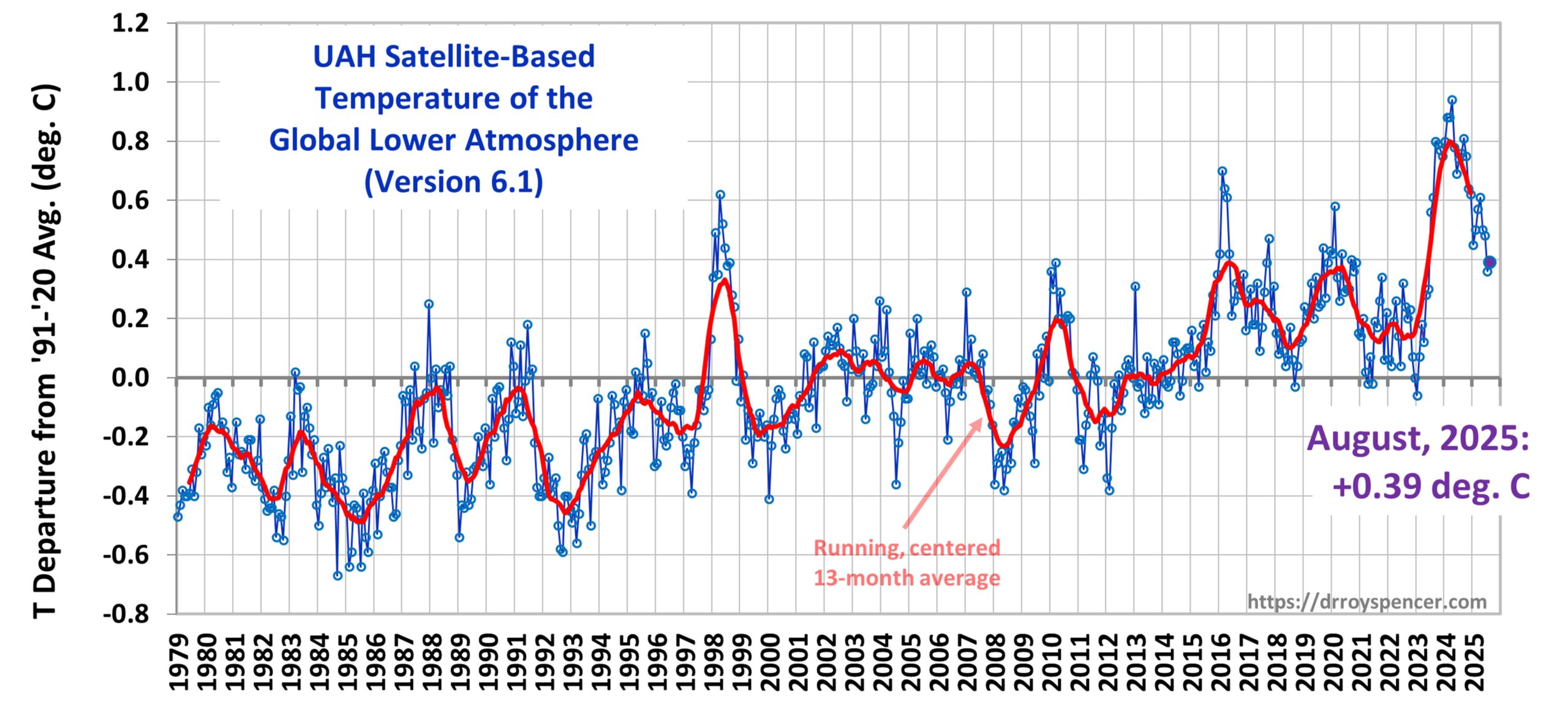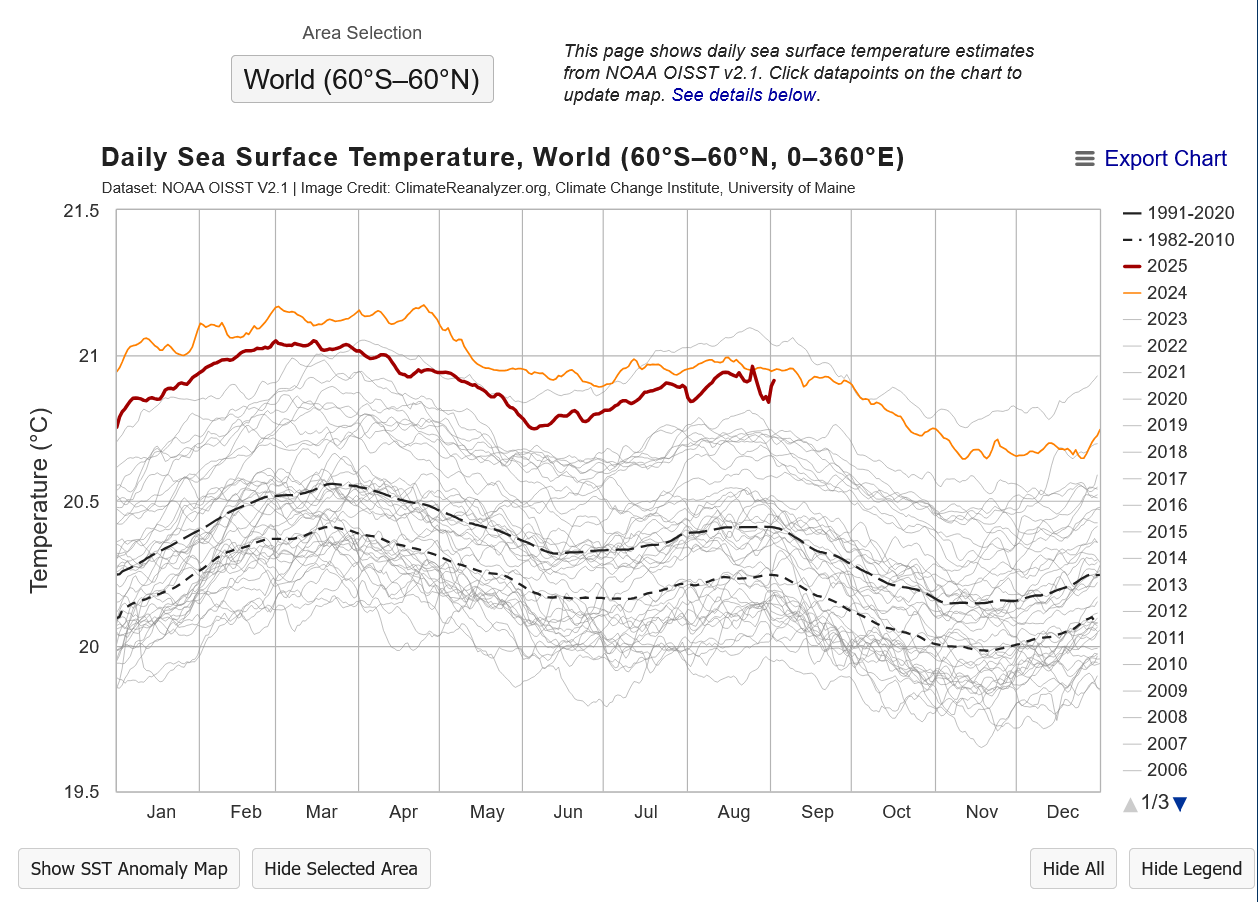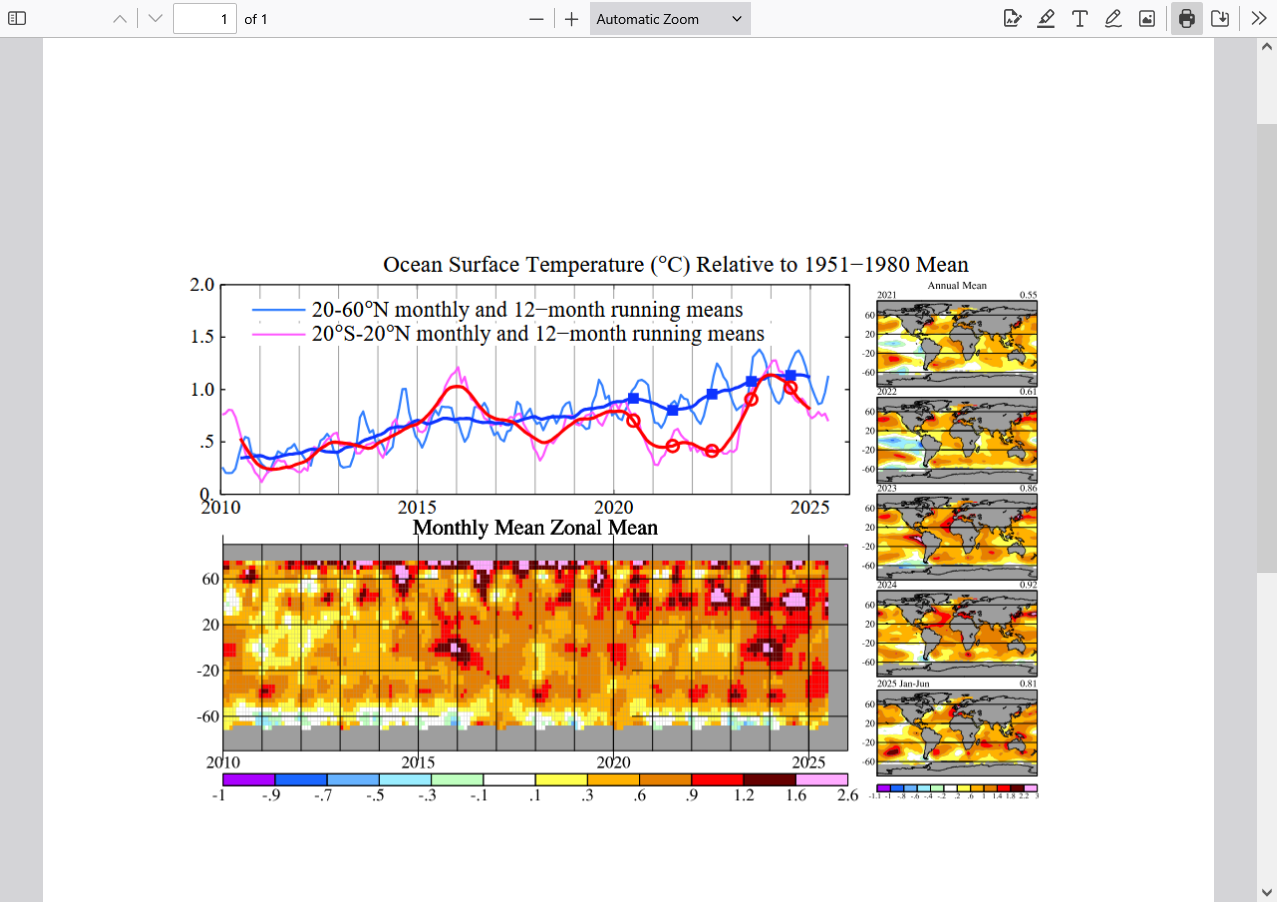
September 2nd, 2025 by Roy W. Spencer, Ph. D.
The Version 6.1 global average lower tropospheric temperature (LT) anomaly for August, 2025 was +0.39 deg. C departure from the 1991-2020 mean, up a little from the July, 2025 anomaly of +0.36 deg. C.

The Version 6.1 global area-averaged linear temperature trend (January 1979 through August 2025) remains at +0.16 deg/ C/decade (+0.22 C/decade over land, +0.13 C/decade over oceans).
++++++++++++++++
metmike: With the atmosphere in a weak La Nina model already (the official forecast is a lagging indicator) its not surprising that global temps have cooled a bit this year. Most of the spikes higher on the graph above were from El Nino's.
No reason to think that the slow, modest, mostly beneficial warming(with massively beneficial CO2 to most life) will not resume during our next significant El Nino.
This is a climate optimum for most life on our planet. Not a climate crisis.
https://www.drroyspencer.com/2025/09/uah-v6-1-global-temperature-update-for-august-2025-0-39-deg-c/
Bellman says:
Same temperature as August 1998, which makes this the equal third warmest August in the UAH data set.
Year Anomaly
1 2024 0.76
2 2023 0.61
3 1998 0.39
4 2025 0.39
5 2016 0.32
6 2020 0.30
7 2017 0.29
8 2019 0.25
9 2022 0.24
10 2010 0.21
+++++++++++++++=
#3-1998 and #5-2016 featured strong(warm) El Nino's, which always belch extra heat out into the atmosphere. Take those out and the top 3 are the last 3 years!
1. 2024
2. 2023
3. 2025
Both these years featured year long, weak La Nina's which caused slight, temporary cooling.
9. 2022
??. 2021
Ocean temperatures have backed off a tad from the record 2023 high and 2nd place, last year, 2024.
https://climatereanalyzer.org/clim/sst_daily/?dm_id=world2

https://www.columbia.edu/~mhs119/Temperature/T_moreFigs/ElNino.vs.aerosols.pdf
